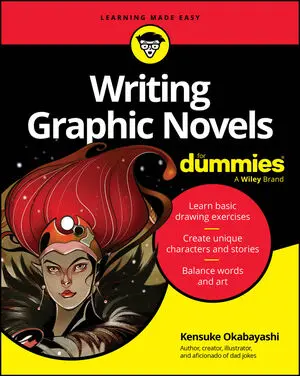Reader expectations
Writing a romance is a creative process and far from formulaic. But romance readers pick up each and every novel with certain expectations firmly in place.
To write a winning romance and connect with your readers, you have to meet these expectations each and every time:
- A sympathetic heroine
- A strong, irresistible hero
- Emotional tension
- An interesting, believable plot
- A happy ending
Getting ready to write
Before you sit down to start writing your romance, make sure you have the following list covered. Accomplishing these tasks will make the writing process easier and more productive:
- Choose a space that can become your home office. Although an entire room would be great, you can turn any unoccupied corner into a dedicated writing space.
- Reconcile your family to the project. Finding time to write can be difficult. Involving your family and getting them on your side from the start makes life easier for everyone.
- Collect your supplies. Assemble everything you’ll need, from computer to coffee mug, ahead of time.
- Surround yourself with relevant research. Collect research materials before you start writing so that the information is at your fingertips.
- Make a schedule. Block out regular writing time and stick to your schedule, unless you have a real emergency.
Tips for successful writing
Keep these tips in mind throughout the writing process:
- There are many different ways to write. Do what works for you.
- Let your characters — your hero and heroine — drive the plot.
- Leave your readers wanting more. Start and stop every chapter (and every scene) so that your reader simply must keep reading.
- Master the techniques of effective pacing.
- Build both the emotions and the action to a climax, and follow it with a satisfying resolution.
Practicalities matter
Romance writing and publishing is a business — a business filled with professionals. If you want agents and editors — and readers — to take you and your work seriously, you have to walk to walk. When you submit a manuscript, you want it looking polished and professional. Keep these details in mind:
- Accuracy counts. Check and double-check your research.
- Know the rules. Correct grammar and punctuation are important. If you do break some of the rules, do so with a purpose and only for effect.
- Simple is usually better. Don’t go thesaurus-crazy.
- Proofread. Don’t just use your computer’s spell-check program.
- Formatting matters. Set your margins correctly and make sure your font and spacing are readable.
Choosing your publishing path
Authors today have more choices than ever before. You’ll want to study the market and decide if indie (self) publishing is the way to go, if you’d rather traditionally publish, or if you’d like to do both.
Consider these tips as you’re working on a publishing plan:
- Figure out your goals. There are different reasons why you’d want to traditionally publish or indie publish. You’ll need to figure out what your goals are first.
- Learn the pros and cons. Study the pros and cons to each way to publish, and see which way matches best with your goals.
- Learn how to be successful as an indie author. If you decide to indie publish, learn the best practices for success. You’ll need to hire your own editors and cover artists, and figure out how to market your book.
- Target the right publishers and editors if traditionally publishing. Research the traditional publishing market and learn who is publishing your genre so you know where to submit your manuscript.
- Find out if you need an agent. Most large publishing houses won’t take unagented manuscripts. If your goal is to be published with a large publishing house, you will first need an agent before you can submit your manuscript.
Stages from the sale to the bound book
The fun isn’t over after you’ve written and submitted or published your manuscript. If you’re traditionally publishing, you will take these next steps:
- Contract negotiation
- Revisions
- Deflag and copy edit
- Galley and author alterations
- Dedication and acknowledgements
- Cover — art, copy, and quotes
- Personal public relations
If you’re indie publishing, you’ll need to take these steps:
- Hire freelancers to create a professional product.
- Create a launch team to help spread the word.
- Network with other authors to help with your marketing.
- Start a newsletter.
- Build a website.
- Learn about ads to market your book.






